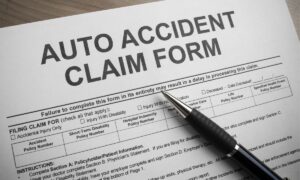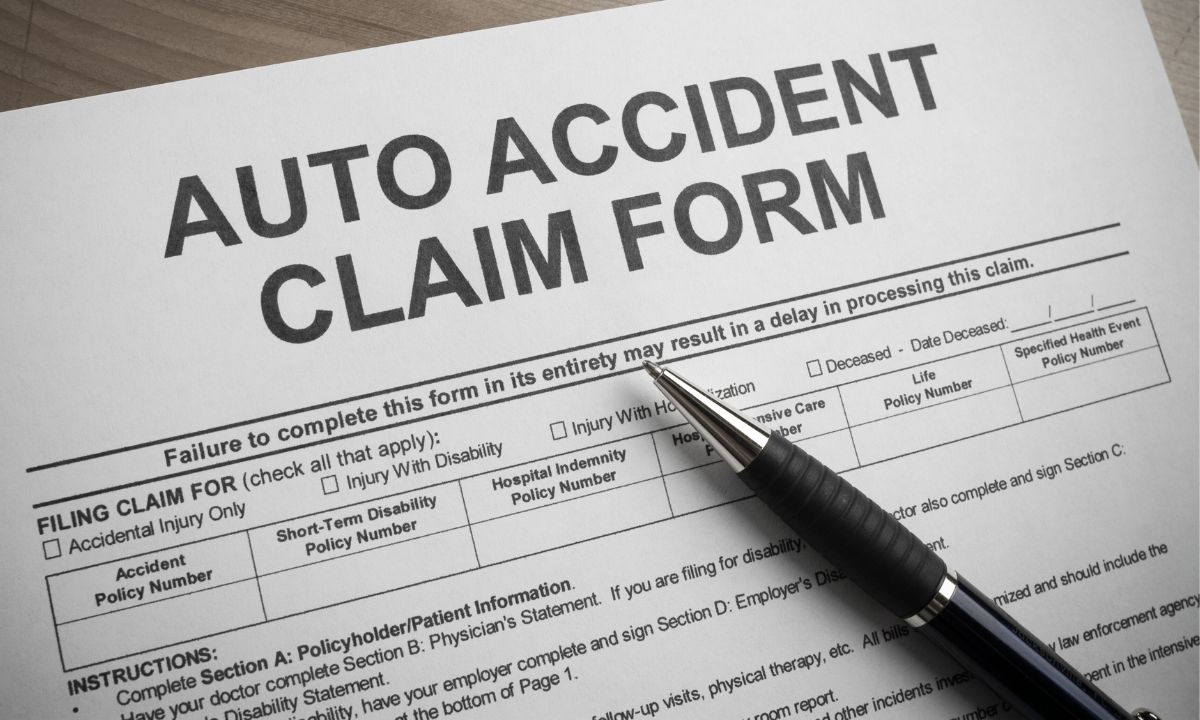 They call it an “accident.” It is a convenient word, a way to shrug off responsibility. But the distracted driver on Whiskey Road, the exhausted trucker on I-20, and the store manager who ignored a dangerous spill did not act by accident. They made a choice. They chose to be careless, and their choice shattered your life.
They call it an “accident.” It is a convenient word, a way to shrug off responsibility. But the distracted driver on Whiskey Road, the exhausted trucker on I-20, and the store manager who ignored a dangerous spill did not act by accident. They made a choice. They chose to be careless, and their choice shattered your life.
The most frequent causes of personal injury claims in Aiken are not random acts of fate. They are the predictable results of negligence. Now you must fight a battle you never asked for against an insurance company that will use that word, “accident,” to deny you justice.
Key takeaways
- The most common injuries in Aiken are not “accidents” but the direct result of another party’s negligent choices, from distracted driving to ignoring unsafe property conditions.
- The insurance company has a specific, predictable playbook to fight each type of claim, and their primary goal is to shift the blame onto you.
- The evidence required to defeat an insurer’s strategy is different for a car wreck, a truck accident, or a premises liability claim.
- In South Carolina, you can still recover compensation even if you are partially at fault, as long as your share of the blame is 50% or less.
- Your opponent is a corporate machine. To win, you need a fighter who knows their tactics and is not afraid to take them to war.
The Battleground: Negligence is a Choice, Not an Accident
In the eyes of the law, a personal injury case is not about bad luck. It is about proving another party was “negligent.”
Negligence simply means someone had a responsibility to act with reasonable care, they failed in that responsibility, and their failure directly caused you harm.
Every personal injury claim is a fight to prove these four elements. The insurance company’s entire strategy is to attack one of them to create just enough doubt to deny their responsibility.
The Two-Ton Weapon: Distracted and Reckless Drivers
You see it every day on Laurens Street. A driver staring at their phone, another weaving through traffic well over the speed limit. They pilot two-ton machines with complete disregard for the lives around them.
Then, in a matter of seconds, their negligence becomes your catastrophe.
The Insurance Playbook: The Blame Shift
For car wreck claims, the adjuster’s primary weapon is South Carolina’s modified comparative fault rule. They know that if they can convince a jury that you were 51% or more responsible for the crash, they pay you nothing.
Their entire investigation will be a hunt for any evidence, no matter how small, that they can use to assign a percentage of fault to you. They will pull your cell phone records to suggest you were distracted.
They will twist your words from a recorded statement to imply you were speeding. They will argue you had the “last clear chance” to avoid the collision, even if their driver ran a red light.
It is a cynical, methodical strategy to make you a co-defendant in your own injury claim.
Your Arsenal: The Undeniable Facts
You defeat their strategy not with arguments, but with overwhelming, objective evidence. An immediate and aggressive investigation is your only defense against the blame shift.
A powerful case against a negligent driver is built on a foundation of hard evidence. Your legal team must move quickly to secure these crucial pieces before they disappear.
- The official police report: This document provides the officer’s unbiased, on-scene assessment of fault.
- “Black Box” data: The Event Data Recorder (EDR) in both vehicles provides objective data on speed and braking that can demolish the other driver’s lies.
- Witness statements: An independent witness who saw the other driver texting is more powerful than any adjuster’s argument.
- Subpoenaed cell phone records: This can prove the other driver was texting, talking, or browsing at the moment of impact.
- Surveillance footage: Video from nearby businesses can provide a god’s-eye view of what really happened.
This evidence transforms the fight from your word against theirs into a battle of undeniable facts.
The Corporate Giant: Catastrophic Truck Accidents
That tractor-trailer that cut you off near the Aiken Mall is not just a big truck. It is the face of a massive corporate enterprise. And when it causes a wreck, you are not just fighting a driver; you are declaring war on a multi-million dollar corporation and its army of lawyers.
The insurance playbook: Control and conceal
Within hours of a major truck crash, the trucking company will deploy its “rapid response team.” This team, made up of investigators and lawyers, has one mission: to control the scene and the evidence.
They will download the truck’s data, take possession of the driver’s logs, and get a statement from their driver before you have even had a chance to speak to an attorney.
Their goal is to build a defense before you have even begun your offense. They will later argue their driver was a good employee with a clean record and that you must have done something to cause the wreck.
Your arsenal: The power of federal law
You fight back by using the government’s own rules against them. The Federal Motor Carrier Safety Administration (FMCSA) heavily regulates the trucking industry.
These regulations are a powerful weapon for holding the entire company, not just the driver, accountable. An aggressive legal team will immediately send a spoliation letter demanding the preservation of all evidence.
The investigation will then dig deep into the company’s operations to expose a pattern of putting profits over safety. According to the South Carolina Department of Public Safety, in 2019 alone, there were over 3,800 crashes involving large commercial trucks in the state, a clear indicator of the constant danger.
The evidence in a truck accident case is a corporate investigation.
It is about showing a pattern of negligence that made a crash inevitable.
Your team will demand:
- Hours-of-service logs: To prove driver fatigue.
- Maintenance and inspection records: To show the company neglected the truck’s brakes or tires.
- The driver’s qualification file: To see if they hired a driver with a history of drug use or reckless driving.
- Post-crash toxicology reports.
This evidence allows you to show a jury that the crash was not an “accident” but the predictable result of corporate greed.
The Hidden Danger: Premises Liability Claims
You are walking through a store, an apartment complex, or a public space. You have a reasonable expectation that the property is safe. When it is not, and you are seriously injured, the property owner must be held accountable.
The insurance playbook: The “clumsy victim” defense
In a slip and fall or negligent security case, the defense has a simple, two-pronged attack. First, they will argue the hazard was “open and obvious” and that you should have seen it and avoided it.
Second, they will try to paint you as clumsy or inattentive, claiming you were looking at your phone or not watching where you were going. They will turn their failure to maintain a safe property into your failure to be careful enough.
Your arsenal: Proof of notice
 To win a premises liability case, you must prove the property owner knew or should have known about the dangerous condition. This is the central battle. Your investigation must focus on finding evidence that establishes this “notice.”
To win a premises liability case, you must prove the property owner knew or should have known about the dangerous condition. This is the central battle. Your investigation must focus on finding evidence that establishes this “notice.”
- Surveillance video: This is often the most important evidence in a slip and fall. It can show how long a spill was on the floor and prove that employees walked right past it.
- Incident reports: The store’s own internal report can contain critical admissions about the hazard.
- Witness statements: Other customers or even disgruntled former employees can testify about a history of unsafe conditions.
- Maintenance and cleaning logs: These can show the store was not following its own safety procedures.
This evidence counters their narrative by proving the danger was not just a random event, but a known problem the owner chose to ignore.
The AI Trap: Relying on Algorithms for Legal Advice
You might turn to online AI chat tools in your search for answers. You must understand the danger. These tools are programmed with generic information. They do not understand the specific rules of the Aiken County Courthouse or the tactics of a particular insurance company.
Relying on an algorithm for legal advice in South Carolina can lead to catastrophic mistakes and missed deadlines. This is a human fight, and you need a qualified human advocate, not a chatbot, in your corner.
Final Questions and Answers
What is the time limit for filing a personal injury claim in South Carolina?
In most cases, the statute of limitations is three years from the date of the injury. If you fail to file a lawsuit within this period, the law will permanently bar you from seeking compensation.
What if I was injured on the job in Aiken?
If you are injured at work, your primary claim is usually through the no-fault workers’ compensation system. However, if your injury was caused by the negligence of a third party, such as a subcontractor or the manufacturer of defective equipment, you may have a separate personal injury lawsuit in addition to your workers’ comp claim.
The insurance company seems friendly and wants to settle quickly. What should I do?
This is a red flag. A quick offer is almost always a lowball offer. The insurer is trying to get you to settle before you know the full extent of your injuries and your long-term medical needs. You should never accept an offer or sign any documents without speaking to an attorney first.
This is Your Fight. You Need a Fighter.
The cause of your injury may be different, but the enemy is the same: a powerful insurance company that will use any tactic to protect its bottom line. You cannot fight them with good intentions. You must fight them with strength, strategy, and a relentless refusal to back down.
At Jamie Casino Injury Attorneys, we were built for this fight. We know the insurance company’s playbook for every type of injury claim in Aiken and across South Carolina.
We are the warriors for the underdog, the champions for the injured. Your fight is our fight. Contact us today if you have been seriously hurt and are ready to fight back.
Call our office at (803) 373-0375 for a free, no-obligation strategy session. We will listen to your story, explain the battle ahead, and show you how we will fight for you. You pay absolutely nothing unless we win.

